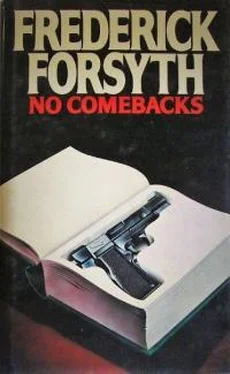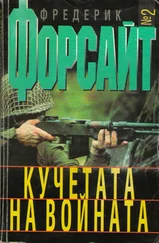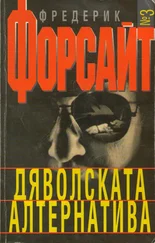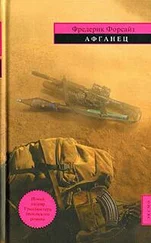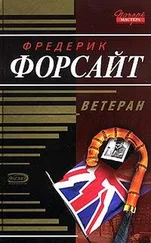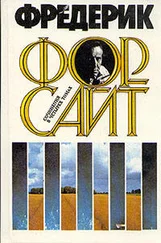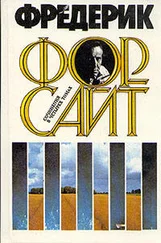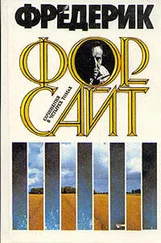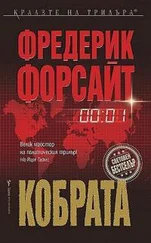There were canvas screens to be organized, and men detailed to collect picks and shovels and report to Mayo Road. He summoned the three detectives attached to his precinct from their lunch in the canteen to his office, and made do with two sandwiches and a pint of milk as he worked.
'I know you are busy,' he told them. 'We all are. That's why I want this one tied up fast. It shouldn't take too long.'
He named his detective chief inspector to be scene-of-crime examiner and sent him to Mayo Road without delay. The two young sergeants got separate jobs. One was detailed to check into the house itself; the council official had said the old man owned it, freehold, but the rating office at the City Hall would have details of its past history and ownership. The register of deeds would clinch the final details.
The second detective sergeant got the legwork; trace every former occupant of Mayo Road, most of them now rehoused in the council apartment blocks. Find the neighbours, the gossips, the shopkeepers, the patrolmen who had had the beat including Mayo Road for the past fifteen years before its demolition, the local priest — anybody who had known Mayo Road and the old man for as many years back as possible. And that, said Hanley with emphasis, includes anyone who ever knew Mrs, that is, the late Mrs Larkin.
He dispatched a uniformed sergeant with a van to repossess all the personal memorabilia from the destroyed house that he had seen in the council van that morning, and to bring the abandoned furniture, fleas and all, into the police station yard.
It was past two in the afternoon when he finally rose and stretched. He instructed that the old man be brought to the interview room, finished his milk and waited five minutes. When he walked into the interview room, the old man was seated at the table, hands clasped in front of him, staring at the wall. A policeman stood near the door.
'Any word from him?' murmured Hanley to the officer.
'No, sir. Not a tiling.'
Hanley nodded for him to go.
When they were alone, he sat at the table facing the old man. Herbert James Larkin, the council records showed.
'Well, now, Mr Larkin,' said Hanley softly. 'Don't you think it would be a sensible thing to tell me about it?'
His experience told him there was no use trying to bully the old man. This was no street villain from the underworld. He'd had three wife-murderers in his time, and all of them mild, meek little fellows who had soon seemed relieved to get rid of the awful details to the big sympathetic man across the table. The old man slowly looked up at him, held his gaze for a few moments, and looked back at the table. Hanley took out a packet of cigarettes and flipped it open.
'Smoke?' he said. The old man didn't move. 'Actually I don't use them myself either,' said Hanley, but he left the pack invitingly open on the table, a box of matches beside it.
'Not a bad try,' he conceded. 'Holding on to the house like that, all those months. But the council had to win sooner or later. You knew that, didn't you? Must have been awful, knowing that they'd send the bailiffs for you sooner or later.'
He waited for a comment, any hint of communication from the old man. There was none. No matter, he was patient as an ox when he wanted a man to talk. And they all talked sooner or later. It was the relief really. The unburdening. The Church knew all about the relief of confession.
'How many years, Mr Larkin? How many years of anxiety, of waiting? How many months since the first bulldozers moved into the area, eh? Man, what you must have gone through.'
The old man lifted his gaze and met Hanley's eyes, maybe searching for something, a fellow human being after years of self-imposed isolation; a little sympathy perhaps. Hanley felt he Was nearly there. The old man's eyes swivelled away, over Hanley's shoulder to the rear wall.
'It's over, Mr Larkin. All over. It's got to come out, sooner or later. We'll go back through the years, slowly, plodding away, and we'll piece it together. You know that. It was Mrs Larkin, wasn't it? Why? Another man? Or just an argument? Maybe it was just an accident, eh? So you panicked, and then you were committed; to living like a hermit all your days.'
The old man's lower lip moved. He ran his tongue along it.
I'm getting through, thought Hanley. Not long now.
'It must have been bad, these past years,' he went on. 'Sitting there all alone, no friends like before it happened, just you and the knowledge that she was still there, not far away, bricked away beside the fireplace.'
Something flickered in the old man's eyes. Shock at the memory? Perhaps the shock treatment would work better. He blinked twice. I'm nearly there, thought Hanley, I'm nearly there. But when the old man's eyes moved back to meet his own, they were blank again. He said nothing.
Hanley kept it up for another hour, but the old man never uttered a word.
'Please yourself,' said Hanley as he rose. 'I'll be back, and we'll talk it over then.'
When he arrived at Mayo Road, the scene was a hive of activity, the crowd bigger than before, but able to see far less. On all four sides, the ruin of the house was surrounded by canvas screens, whipped by the wind but enough to keep prying eyes from seeing the job going on within. Inside the hollow square that included a portion of the roadway, twenty hefty policemen in heavy boots and rummage gear were pulling the rubble to pieces by hand. Each brick and slate, each shattered timber from the stairs and banisters, each tile and ceiling joist, was carefully plucked out, examined for whatever it might show, which was nothing, and tossed out into the roadway, where the rubble mounted higher and higher. The contents of cupboards were examined, the cupboards themselves ripped out to see if there was anything behind them. All walls were tapped to see if they contained hollow cavities before they were pulled down brick by brick and thrown into the road.
Round the fireplace, two men worked with special care. The rubble on top of the corpse was lifted carefully away until only a thick film of dust covered the body. It was bent into an embryo posture, lying on its side, though in its cavity it had probably sat upright, facing sideways. Professor McCarthy, looking over what was left of the house wall, directed these two men at their work. When it was done to his satisfaction, he entered the cavity among the remaining bricks and with a soft brush, like a careful housewife, began to whisk away the creamy dust of the old mortar.
When he had cleared the major part of the dust, he examined the body more closely, tapped part of the exposed thigh and of the upper arm, and emerged from the cavity.
'It's a mummy,' he told Hanley.
'A mummy?'
'Just so. With a brick or concrete floor, a sealed environment on all six sides, and the Warmth of the fireplace two feet away, mummification has taken place. Dehydration, but with preservation. The organs may well be intact, but hard as wood. No use trying to cut tonight. I'll need the warm glycerine bath. It'll take time.'
'How long?' asked Hanley.
'Twelve hours at least. Maybe more. I've known it take days.' The professor glanced at his watch. 'It's nearly four. I'll have it immersed by five. Tomorrow morning around nine, I'll look in at the morgue and see if I can start.'
'Blast,' said Hanley. 'I wanted this one sewn up.'
'An unfortunate choice of words,' said McCarthy. 'I'll do the best I can. Actually, I don't think the organs will tell us much. From what I can see there's a ligature round the neck.'
'Strangulation, eh?'
'Maybe,' said McCarthy. The undertaker who always got the city contracts had his van parked out beyond the screens. Under the state pathologist's supervision, two of his men lifted the rigid corpse, still on its side, onto a bier, covered it with a large blanket and transferred their cargo to the waiting hearse. Followed by the professor, they sped off to Store Street and the city morgue. Hanley walked over to the fingerprint man from the technical section.
Читать дальше
